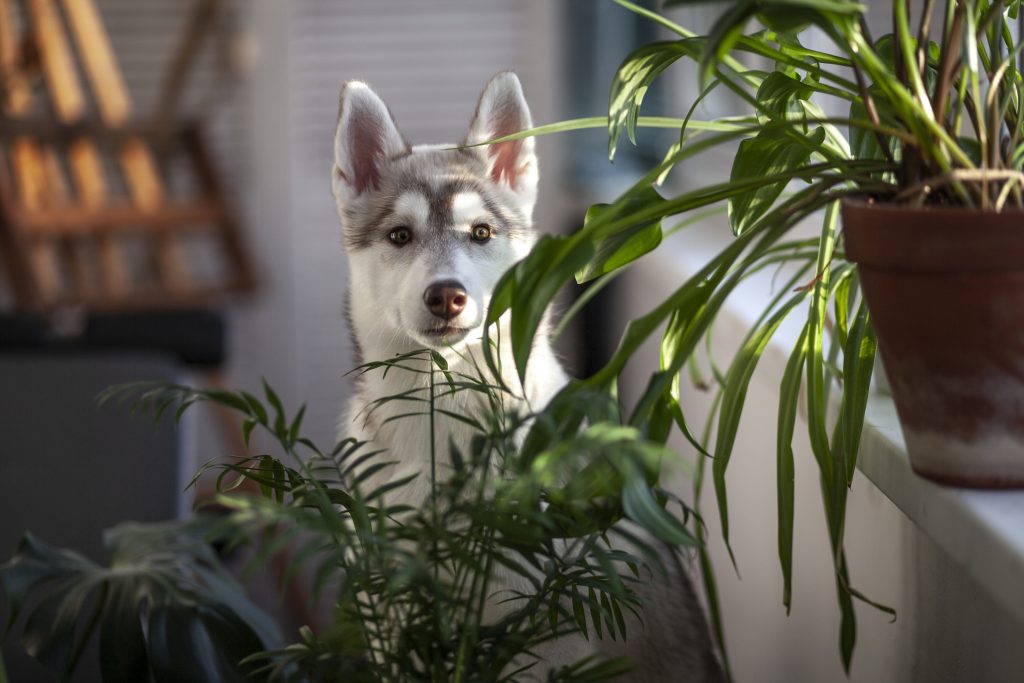
Life in retirement can feel a little slow and quiet, especially when you spend lots of time at home, have become an empty nester, or haven’t picked up any new hobbies. Plant parenting is a great way to fill up your time. It invests you in nurturing life, prompts you to learn new things, and engages you in routine. If you are new to it, you may be unsure of what plants to get, which ones are safe and how to properly take care of them. Here are 3 pet-safe, low light houseplants plants to start your exciting journey:
- The Mighty Cast Iron Plant
Although it grows slower than many houseplants, the cast iron is designed to survive in harsh conditions, allowing it to grow with minimal water and sunlight. It can grow 4 feet tall and has soft, arching leaves that usually appear best in bigger planter pots. There are several varieties of cast iron plants, but all of them grow well in the spring, kept at room temperature, and watered moderately.[1]
- The Colorful Moth Orchid
Nothing brightens up the room like this three-lobed flower. Many growers shy away from flowers as indoor houseplants because their lifespan can be relatively short. However, the moth orchid is a classic, pet-friendly plant that requires bright, indirect light and slightly frequent watering. Direct sunlight burns the foliage of the plant and overwatering clogs its soil, so it is essential to let it dry out a bit between watering and put it away from direct sun. It blooms for three or four months, displaying bright white, yellow, purple, or orange flower petals.[2]
- The Bold Watermelon Peperomia
This tropical plant grows luscious and full, displaying watermelon-patterned leaves. The watermelon peperomia is pet-safe and blooms in the spring and summer, reaching 12 inches at its full maturity.[3] Due to its small size, it looks best in smaller planter pots and should sit in bright, indirect sunlight. Despite the plant loving lots of moisture, overwatering can cause root rot and kill it. Its abundant foliage can appear to be droopy, but overly drooping is a sign of dehydration.
These three houseplants vary in size, look, and general effort of care. Even though they are safe to grow around cats or dogs, it is essential to keep them out of sight if your young grandkids are around, as they can be poisonous to humans. Growing these requires minimal effort as they survive in harsh conditions. However, there is no need to tap into their survival instincts if they can be well nurtured to look mighty, bold, and colorful in your home.
[2] https://www.westonnurseries.com/moth-orchids-are-easiest-to-grow/
[3] https://www.thespruce.com/watermelon-peperomia-guide-5201470
The commentary on this blog reflects the personal opinions, viewpoints, and analyses of BML Wealth Management’s employees providing such comments and should not be regarded as a description of advisory services provided by West Wealth Group, LLC. The views reflected in the commentary are subject to change at any time without notice. Nothing on this blog constitutes investment advice. Any mention of a particular security and related performance data is not a recommendation to buy or sell that security. Investing involves risk, including the potential loss of principal. No investment strategy can guarantee a profit or protect against loss in periods of declining values. Past performance is no guarantee of future returns.
Investment advisory services through West Wealth Group, LLC, an SEC Registered Investment Adviser. BML Wealth Management and West Wealth Group, LLC are affiliated entities. Insurance Services are offered through BML Wealth & Insurance Services, California Insurance License #0M15550.
We do not provide tax or legal advice. All individuals are encouraged to seek guidance from qualified professionals regarding their personal situation. Any references to protection benefits or steady and reliable income streams in this guide refer only to fixed insurance products. They do not refer, in any way, to securities or investment advisory products.






